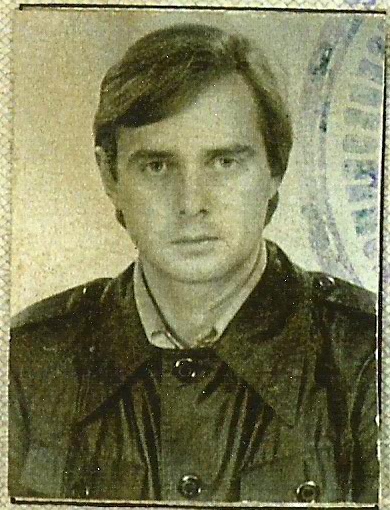
Peeter Ilus
Peeter Ilus (born 9 January 1948) is a poet, translator and publisher.
He was born at Kääpa village in Jõgeva County, studied at several secondary schools in Tartu and completed Jõgeva evening secondary school in 1967. From 1967−1968, he studied Estonian philology at the University of Tartu, from 1969–1971 theatre studies at Leningrad Institute of Theatre, Music and Cinematography and from 1976–1980 ethnography at the universities of Turku and Helsinki. Due to marriage, Ilus lived in Finland and the US from 1976–1979; thereafter returned to Estonia. He participated in underground activities against the Soviet regime. After the restoration of Estonia’s independence, he helped to restore the Estonian Defence League. He is a member of the Estonian Writers’ Union from 1997.
Ilus began to write poems in the late 1960s. His verses appeared in underground collections Marm, Kolme mehe laulud (‘Songs of Three Men’), Õitsev tuul (‘Flowering Wind’), Jumala tuul (‘God’s Wind’), Kuller I (‘Courier’ I) Tõlet I and II. Peeter Ilus is the author of several books of poetry. As a poet, Ilus is also known as the author of lyrics of several famous pop songs, e.g., Raagus sõnad (‘Barren Words’, performed by Marju Kuut) and Vana vaksal (‘The Old Station’, performed by Ivo Linna). Ilus’ poetry reveals melancholy lyricism and ethnic nostalgia combined with witty wording skills. His first poetry collection Lõbu ja himu (‘Fun and Desire’) was published in the series of Mana Luuleraamat (‘Mana Book of Poetry’) in Los Angeles in 1977. In Estonia, Ilus’ collection of selected poems from 1966–1988, Korjatud luuletusi (‘Gathered Poems’), was published in 1990.
Peeter Ilus has written and published renderings of the Kyrgyz epic Manas (2012) and the Tartar epic folk poem Yedigey (2019). Both were issued by Penikoorem, a publishing company founded by himself, which also published Ilus’ later poetry collections. This company founded by Ilus in 1985 has also published works of Ilmar Laaban and Jaan Oks and a number of translations of Japanese literature. Even before founding his own publishing company, Ilus participated in editing and compiling of several publications.
He had translated into Estonian Christopher Marlowe’s play Edward II (1983, together with Krista Mits) and the poetry collection of Ivan Nikitin, Fyodor Tyutchev and Afanasy Fet Ilmsi ja ulmsi (‘In Reality and Dreams’, 1977, together with Ly Seppel and Andres Ehin).
Peeter Ilus is the compiler and editor of the transactions of the Estonian Heritage Society.
L. P. (Translated by I. A.)
Books in Estonian
Poetry
Lõbu ja himu. [Los Angeles]: Boreas&Mana, 1977, 38 lk.
Korjatud luuletusi. Tallinn: Perioodika, 1990, 46 lk.
Öö ja tee: pühendusluule 1968–1996. Mütoloogiline graafika 1978–1993. Peeter Ilus, Tõnis Vint. Tallinn: Penikoorem, 1996, 60 lk.
Mõned luuletused. Tallinn: Eesti Keele Sihtasutus, 2003, 53 lk.
Konservatiivne revolutsioon. Tallinn: Penikoorem, 2008, 67 lk.
Uppuvad mered. Pärnu: Penikoorem, 2013, 27 lk.
Laululehtede langemine: valitud luuletused. Tallinn: Eesti Kirjastus, 2019, 73 lk.
Stories for children
Vesipapp ning puruvana. Tallinn: Penikoorem, 2006, 37 lk.



